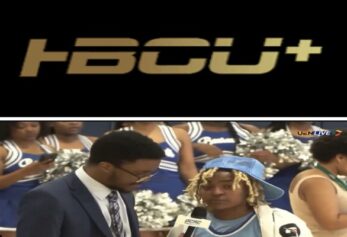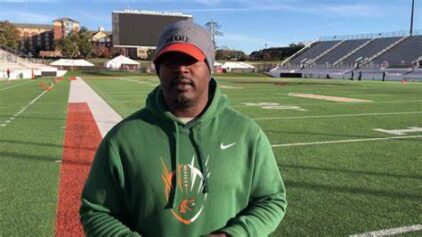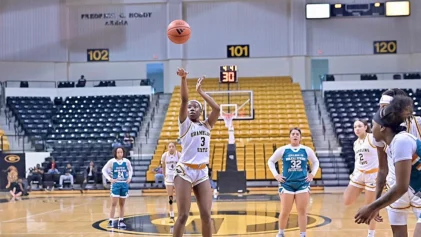From start to finish, the 2013 season was a mixed bag for black college football. It seemed as with every step taken forward, another misstep was waiting in the background to damage the brand.
The season started off with high expectations for several teams, coaches and players. Bethune-Cookman came into the season as the team earmarked "most likely to win an FCS playoff game." Fresh off a trip to the Division II national title game, Winston-Salem State was thought of as a serious contender to win the whole thing in 2013. Players like Alabama State running back Isaiah Crowell and Southern quarterback Dray Joseph were looking to take home individual accolades and improve their pro prospects.
But before the season even started, things began to fall apart. Less than two weeks before his team was to open the season, North Carolina Central's Henry Frazier was arrested and subsequently fired, leaving the fledgling program in the hands of an assistant. The story gained some regional attention, but it would pale in comparison to the media attention other stories would receive later in the season.
Two weeks later, Grambling shocked the world by firing its head coach and former star quarterback Doug Williams. It would not be the last time the school grabbed national attention during the season.
Things began to turn around in Week Three, especially in the MEAC. The league scored several out of conference wins, including NC A&T upsetting Appalachian State and Bethune-Cookman beating FBS squad Florida International. Meanwhile, Tennessee State caught fire, rising from obscurity to find a spot in the FCS Top 25 poll.
As BCU and TSU climbed in the rankings, the SWAC began to draw criticism for what many saw as an increasingly weak product. The conference went half the season without an OOC win against Division I competition. No team exemplified the struggle more than Grambling.
Even after dumping Williams, the team continued to lose. Days after a blowout loss to Alcorn State, the players skipped out on practice to protest everything from travel conditions to facilities to interim coach George Ragsdale. Ragsdale was eventually fired, but the players continued their strike, refusing to travel to Jackson State.
The game was ultimately ruled a "no contest" by the NCAA. The players later released pictures of a workout facility with tattered equipment and allegedly moldy equipment. The players eventually returned to finish the season, but the entire incident was considered a blow to Grambling in particular and the image of HBCU football as a whole.
The Grambling controversy may have been the biggest story of the HBCU football season, but it wasn't the only one to draw national attention. Just hours before Winston-Salem State and Virginia State were set to play in the CIAA Championship Game, an altercation occurred at a luncheon on the campus of WSSU. WSSU quarterback Rudy Johnson was initially reported to have been attacked by as many as five VSU players. Hours after the incident, the CIAA canceled the championship game. The story quickly spread, making it a hot topic everywhere from ESPN to CNN.
As the flames from the WSSU-VSU incident began to wind down, the playoffs put the focus back on the field. Three HBCUs (BCU, TSU and South Carolina State) made the FCS playoffs for the first time since 1999. TSU would go on to defeat Butler 31-0, becoming the first HBCU in the 21st century to win an FCS playoff game. Both TSU and WSSU would lose in the second round of the playoffs, ending any hopes of a national title for each school and HBCUs. Down in Houston, Southern defeated Jackson State in a wild, double-overtime thriller that gave a glimmer of hope to the SWAC brand.
When we look back on 2013, we'll remember the big, ugly moments. But we'll also see that there were some strides made. BCU and Winston-Salem State spent the entire season nationally ranked. Tennessee State finally picked up an FCS win. Southern looks like it's back to being one of the best brands in college football. Whatever happens this offseason, I'll be looking forward to 2014 with anticipation for another year of Black College Football.



